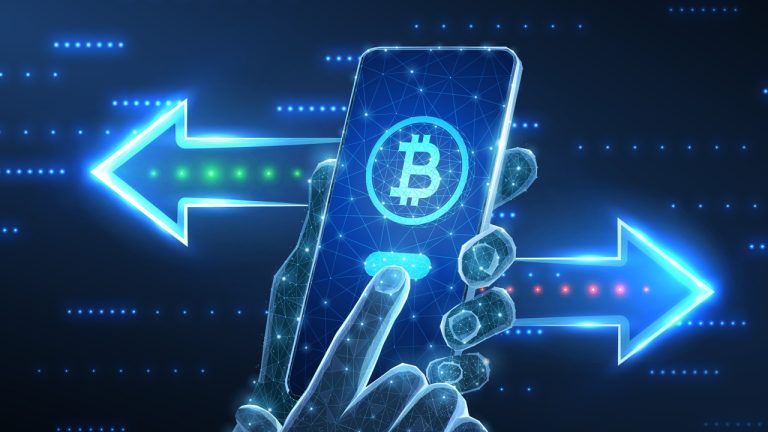 On Wednesday, the multichain wallet Bitkeep announced it raised $30 million from the crypto derivatives platform Bitget. Bitkeep now has an overall valuation of $300 million, with goals aimed at strengthening the links between decentralized finance (defi) and centralized finance (cefi). Bitget Invests $30 Million in Bitkeep; Wallet Firm Is Now Valued at $300M Crypto […]
On Wednesday, the multichain wallet Bitkeep announced it raised $30 million from the crypto derivatives platform Bitget. Bitkeep now has an overall valuation of $300 million, with goals aimed at strengthening the links between decentralized finance (defi) and centralized finance (cefi). Bitget Invests $30 Million in Bitkeep; Wallet Firm Is Now Valued at $300M Crypto […]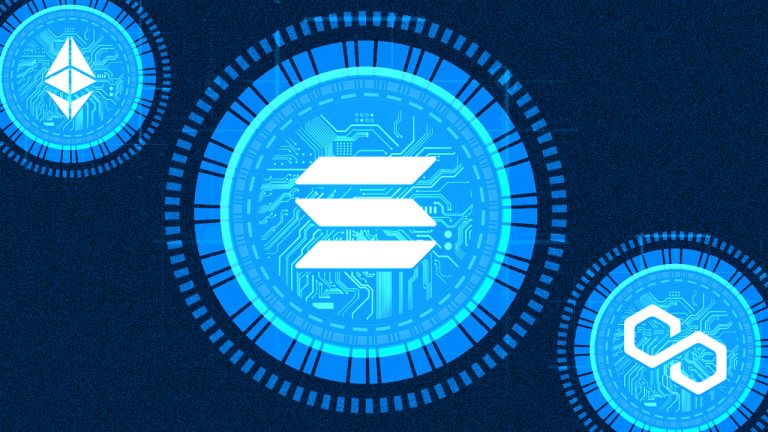 Two prominent Solana projects have announced they are transitioning over to new blockchains. The non-fungible token (NFT) venture Degods detailed it will be moving to the Ethereum chain and the Y00ts NFT team detailed it is moving to Polygon. Both teams said the transitions will take place in 2023. Degods Says NFT Project Will Move […]
Two prominent Solana projects have announced they are transitioning over to new blockchains. The non-fungible token (NFT) venture Degods detailed it will be moving to the Ethereum chain and the Y00ts NFT team detailed it is moving to Polygon. Both teams said the transitions will take place in 2023. Degods Says NFT Project Will Move […]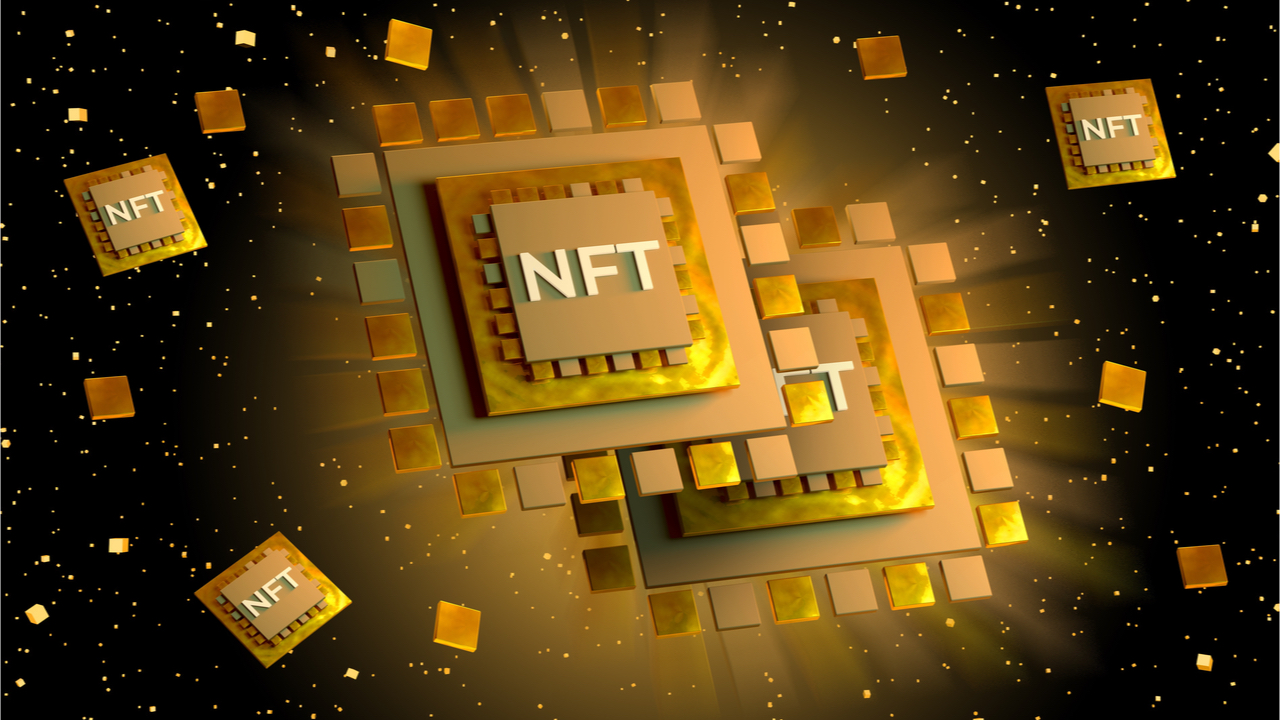 During the past seven days, non-fungible token (NFT) sales have dropped 23.37% and 30-day statistics show NFT sales are down 63.10% from the month prior. While NFT interest has been waning, a recent study indicates that global regions like Singapore and Hong Kong lead the pack in terms of NFT interest. The research further suggests […]
During the past seven days, non-fungible token (NFT) sales have dropped 23.37% and 30-day statistics show NFT sales are down 63.10% from the month prior. While NFT interest has been waning, a recent study indicates that global regions like Singapore and Hong Kong lead the pack in terms of NFT interest. The research further suggests […]
Noah Davis, the NFT expert for the auction house Christie’s, said he’s not looking to change the plan for CryptoPunks when he leads the project and has invited holders to a one-on-one chat.
Noah Davis, the nonfungible token (NFT) specialist at auction house Christie’s, has said he’s leaving the position in July to take up a post as brand lead for the CryptoPunks NFT collection with Yuga Labs.
Announcing the move on Sunday in a Twitter thread, Davis looked to quash any anxieties holders had regarding the future of one of the oldest NFT projects, saying he “will not f*ck with the punks.”
What does that mean? It means no Punks on lunchboxes or cringe TV shows/shitty movies. It means no arbitrary rushed utility or thoughtless airdrops. It means if you love your Punk(s) because they are what they are (just Punks) then you and I see eye to eye…
— Noah (@NonFungibleNoah) June 19, 2022
He invited CryptoPunk owners to schedule a talk with him about the project’s future at the NFT NYC event and said the new position wouldn’t take away from his own NFT project.
Davis is responsible for the record-breaking auction of Beeple’s Everydays: The First 5000 Days NFT, which sold for over $69 million in March 2021.
Yuga Labs acquired the intellectual property of the CryptoPunks collection from Larva Labs in March, saying it would turn over full commercial rights to the owners, a promise yet to be realized.
But, Yuga Labs co-founder Wylie Aronow aka Gargamel addressed the holdup in a series of tweets on Sunday, writing it was “too significant to rush” and that new terms “will be rolling out in the next couple of weeks.”
With the announcement of Davis’ move and the new terms set to take effect soon, some are alleging that insiders had prior knowledge of the information, citing the surging sales volume of the collection.
Ok so no one's going to address the obvious insider trading that happened in the last 48 hours?
— Chainleft (@ChainLeftist) June 19, 2022
Chart: @punk9059 https://t.co/56s56D5Nw1 pic.twitter.com/beNkWbAc2Y
According to OpenSea, 39 sales of the CryptoPunks collection have taken place since the announcement, with 101 sales in total on Sunday, up from the only 19 sold the day prior, on Saturday.
Convicted con-artist and fraudster Anna Sorokin, who from 2013 to 2017 pretended to be the wealthy German heiress “Anna Delvey” to defraud acquaintances and business of over $275,000, has started an NFT collection.
Titled Reinventing Anna, the collection features 2,000 NFTs for 0.1 Ether (ETH) each, or about $110 at the time of writing. It is marketed as a way for “fans to interact with Anna” and access private “ask-me-anything’s” with Sorokin.
Related: NFT trading volume surges amid market and floor price crash
The collection will feature 20 “gold edition cards,” which grant owners the possibility of a one-on-one phone call or in-person visit with the so-called “renowned socialite.”
The collection’s name is a play on the Inventing Anna Netflix drama miniseries released earlier this year, the subject of which is inspired by Sorokin’s story.
“I see this first drop as an opportunity to directly connect with my audience and take charge of the narrative that's been largely outside of my control,” Sorokin wrote in an Instagram post regarding the collection.
It’s unknown how NFT holders will be able to visit her in person, however. Since March 2021, Sorokin has been held by United States Immigration and Customs Enforcement for overstaying her visa and faces deportation to Germany.
Duppies, an upcoming Solana NFT project from the same team as the popular “DeGods” collection, had its Twitter account hacked on Saturday, with attackers tweeting a link to a “stealth mint” of the NFTs.
The link was a phishing website, and users who connected their wallets and attempted to mint had their wallets drained of all funds. One Twitter user wrote they lost 650 Solana (SOL), worth around $18,850, from the attack.
In Twitter Spaces after the attack, the creator of the upcoming collection known as Frank joined security auditor Code Monkey to explain how the attack happened.
The auditor said the attacker likely accessed the Duppies Twitter account in a targeted SIM swap attack.
The attack works by scammers contacting the phone provider of the mobile number holder and trick the carrier into swapping the mobile number to a SIM card in their control. From there, the attacker can bypass any two-factor authentication on the account and gain access.
Watchmaker TAG Heuer has released a watch that can pair with a smartphone to show NFTs on the watch face and also connect to the blockchain to verify the NFT is owned by the wearer.
Despite warnings from the nation’s authorities, the number of NFT and digital collectible platforms in China has seen a five times increase since February 2022, going from just over 100 to over 500, according to local state-owned media.
 On Thursday, Warner Bros. announced it was collaborating with the non-fungible token (NFT) focused social media platform Nifty’s and at the end of June, the two firms will launch a story-driven NFT collection called “Looney Tunes: What’s Up Block?” The upcoming NFTs will tell a unique Looney Tunes storyline and will also celebrate the character […]
On Thursday, Warner Bros. announced it was collaborating with the non-fungible token (NFT) focused social media platform Nifty’s and at the end of June, the two firms will launch a story-driven NFT collection called “Looney Tunes: What’s Up Block?” The upcoming NFTs will tell a unique Looney Tunes storyline and will also celebrate the character […]
Data on the most well recognized nonfungible token (NFT) projects show that key metrics have fallen with floor prices and market capitalization over the past month.
“Blue-chip” nonfungible token (NFT) collections have seen their floor prices and market capitalization slide over the past 30 days, with some of the most well-recognized projects halving in value for these key metrics.
Data collected on key Ethereum (ETH) NFT projects by DappRadar show the floor prices of established collections such as CryptoPunks, Bored Ape Yacht Club (BAYC), Mutant Ape Yacht Club (MAYC), and Moonbirds, are at most down around 55% over 30 days.
The MAYC is the worst off of the four with the floor price diving 55% to 16.7 ETH ($31,300). The more popular BAYC has fallen over 47% to 86.7 ETH ($163,000), and CryptoPunks by almost 49% to 45 ETH ($85,000).
The only collection to gain in the month was Moonbirds up 22% with a 19.6 ETH floor price, roughly $37,000.
Whilst the floor price for Moonbirds may be up, its market cap has fallen 55% to $368 million. The others have also tumbled with the biggest losses being the MAYC, down over 71% to under $610 million, whilst BAYC and CryptoPunks were down 62% and 51% respectively.
Despite the falling metrics the collections still continue to dominate the top NFT sales over the past 30 days the most expensive being a BAYC NFT sold for 410 ETH on May 5, worth about $1.2 million at the time.
A free-to-mint NFT collection called Goblintown launched on May 22 now commands a nearly $50 million market cap and is in the top 30 NFT collections.
Despite the website stating the NFTs have “No roadmap. No Discord. No utility.”, Goblintown is in second place for volume over the last seven days at nearly $23 million according to DappRadar, beating out collections such as Otherdeeds and the Bored Ape Yacht Club.
The collection features 9,999 “goblins” which debuted without any real marketing, fanfare or the usual hype-building for a NFT project. The team behind Goblintown is not known and often post seemingly nonsensical and crude tweets from the official Twitter account.
ₐₐₐᵤᵤᵤᵤgggg ₙᵤₘbᵤᵣ ₒₙₑ pic.twitter.com/eLGl6ASJXI
— goblintown.wtf (@goblintownwtf) May 22, 2022
Despite all of these factors, the floor price of the collection was 2.7 ETH or around $5,000 on NFT marketplace OpenSea at the time of writing. The most expensive NFT sold from the collection has fetched a price of 69.4 ETH or about $130,000.
Imagine working on a NFT project for months, setting up collabs with the biggest projects/alpha groups, getting 200K followers engagement farming WL spot giveaways, then after mint everyone bricks the floor under mint price
— ashrobin (@ashrobinqt) May 22, 2022
goblintown: free mint, no collabs, no WL, no discord pic.twitter.com/bMiJoWufyg
RTFKT (pronounced “artifact”) the Web3 arm of sportswear and sneaker giant Nike has added an Ethereum Name Service (ENS) domain to the company's repertoire, purchasing “dotswoosh.eth” for 19.72 ETH, about $37,000.
Related: NFT 2.0: The next generation of NFTs will be streamlined and trustworthy
Whilst it’s unclear what use Nike will put the domain to, the company has been investing in Web3 through the creation of multiple sneaker-based NFT collections with RTFKT, and has defended its claim to the space, taking a reseller of Nike NFT sneakers to court.
The purchase of this latest ENS domain brings the total owned ENS domains by the company to ten.
The popular move-to-earn NFT game Stepn has banned users in China from its app to adhere to Chinese regulations. Mainland Chinese users make up 5% of the platform's overall user base and Stepn’s founder has said the move will not have a significant impact on the firm's finances.
The community for a Solana (SOL) based NFT game has dished out payback to a scammer after the developer of the game raised royalties to 98% on a batch of NFTs stolen in a Discord hack phishing scam. Community members bought back the NFTs to return them to their original owners whilst the hacker made a measly 2% on each sale.

OpenSea's critics said the policy change stifled NFT creators by trashing the ability to create unlimited collections and NFTs on the platform.
NFT marketplace OpenSea has backflipped on a controversial decision to limit the number of NFTs and collections creators can mint using its smart contract.
The platform previously allowed unlimited collections and items, but changed its policy to only allow five NFT collections with 50 items per collection when using OpenSea’s collection storefront contract.
The unexpected announcement from OpenSea’s Twitter Support account, posted on Jan. 27, stated the lower limits came after it had "addressed feedback received about its creator tools." .
A follow-up tweet asked the community to “share how this affects your creative flow.”
NFT creators hit back, some arguing that their unfinished collections would now never be completed due to the change, with others noting that they were part-way through creating collections numbering in the hundreds to thousands.
One creator, who goes by “HamsterNFT” on Twitter, shared a screenshot showing how they couldn’t upload any more of their NFTs, stating their frustration that they’re now stuck at 96 pieces out of the 100 piece collection.
Well… For instance, I committed myself to a 100 piece collection. I’m currently at 96 out of the 100… And now I’m stuck with this message and I can’t complete it. Ever. Thanks! pic.twitter.com/DdLRNpiucI
— Hammy.eth | Hamster NFT Collections (@HamsterNFT) January 27, 2022
Creators could still deploy their own smart contract to circumvent the limits imposed by OpenSea, but with smart contract deployment costing between US$1,000 and US$2,000 in gas fees, some stated they will move their collections to competing marketplaces.
OpenSea reversed the decision today, tweeting their apologies for not previewing the decision with its community. It stated the reason for the limits was that its smart contract was being misused, and that “over 80% of the items created with this tool were plagiarized works, fake collections, and spam.” OpenSea added that it's “working through a number of solutions to ensure we support our creators while deterring bad actors.”
To all the creators in our community impacted by the 50 item limit we added to our free minting tool, we hear you and we're sorry.
— OpenSea (@opensea) January 27, 2022
We have reversed the decision.
But we also want to offer an explanation ↯ pic.twitter.com/Y3igaE1RM2
In a separate controversy, an email was sent to OpenSea users who still had “inactive listings” on their accounts, asking them to cancel any old listings due to a recently found exploit that allows attackers to buy NFTs for old listing prices.
Related: More evidence game devs hate NFTs and crypto
Prominent crypto influencer “dingalingts” in a thread, warned his 75,000+ followers, that following the advice in OpenSea’s email would lead to easier execution of the exploit, labeling the advice from OpenSea “incredibly irresponsible” and “makes things 100x worse”.
Dingalingts argues that following OpenSea’s advice allows exploiters to view the cancellation order for previously listed prices on the blockchain, attackers can then pay higher gas fees to have their order executed before the cancellation in a practice known as “front-running”, thus buying the NFT for a cheaper price.
To prevent this, dingalingts advises to “transfer all the NFTs with "inactive Opensea listings" OUT of your address first before canceling the live listings in your original address.”
“Only after all the listings are canceled are you safe to transfer it back,” they said.
However OpenSea claims to have addressed these issues by changing the default listing duration from six months to one month, building a dashboard to show users their listings, and alerting them when an NFT transferred from their wallet has an associated active listing.
The changes were made so users could more easily view and be alerted to listings associated with their NFTs, in an attempt to limit the number of listings that remain active long after they’re relevant.
Cointelegraph approached OpenSea for comment.
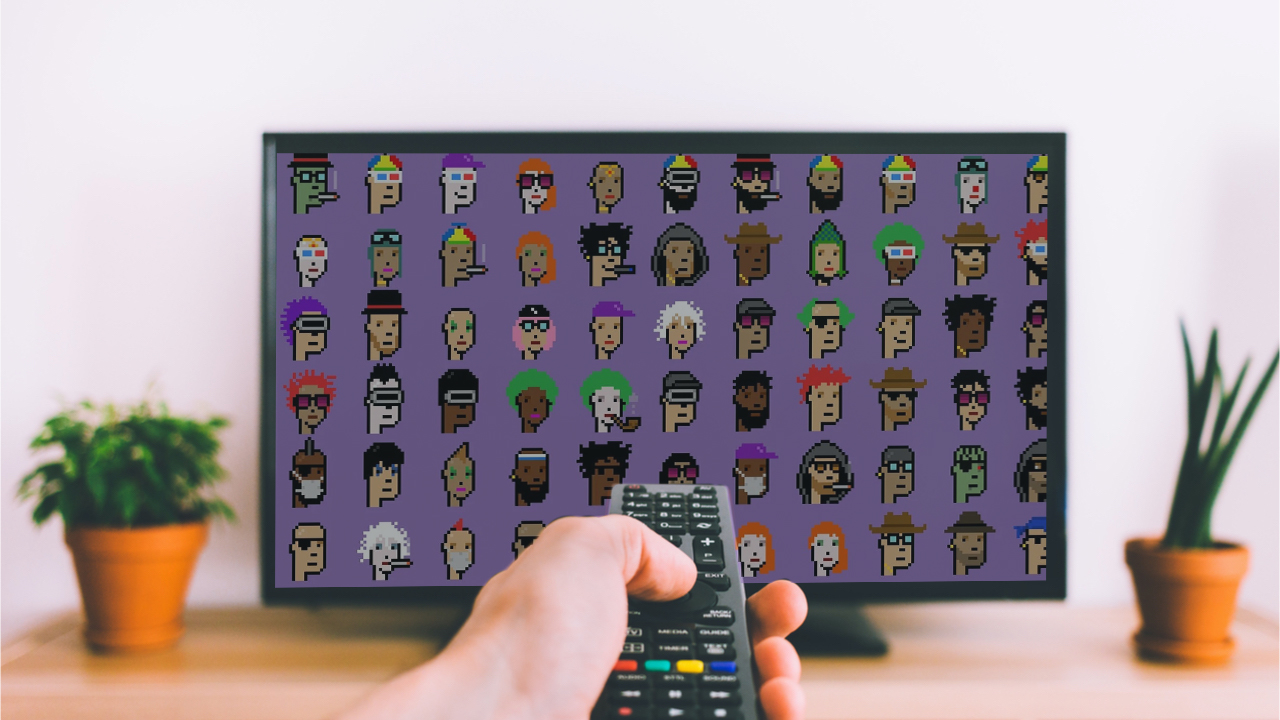 On Tuesday, the global talent, sports, and entertainment agency, United Talent Agency (UTA), announced the company has signed three non-fungible token (NFT) projects created by the firm Larva Labs. UTA will work with the NFT collectibles and intellectual property (IP) for Cryptopunks, Meebits, and Autoglyphs across television, film, licensing, publishing, and video games. UTA to […]
On Tuesday, the global talent, sports, and entertainment agency, United Talent Agency (UTA), announced the company has signed three non-fungible token (NFT) projects created by the firm Larva Labs. UTA will work with the NFT collectibles and intellectual property (IP) for Cryptopunks, Meebits, and Autoglyphs across television, film, licensing, publishing, and video games. UTA to […]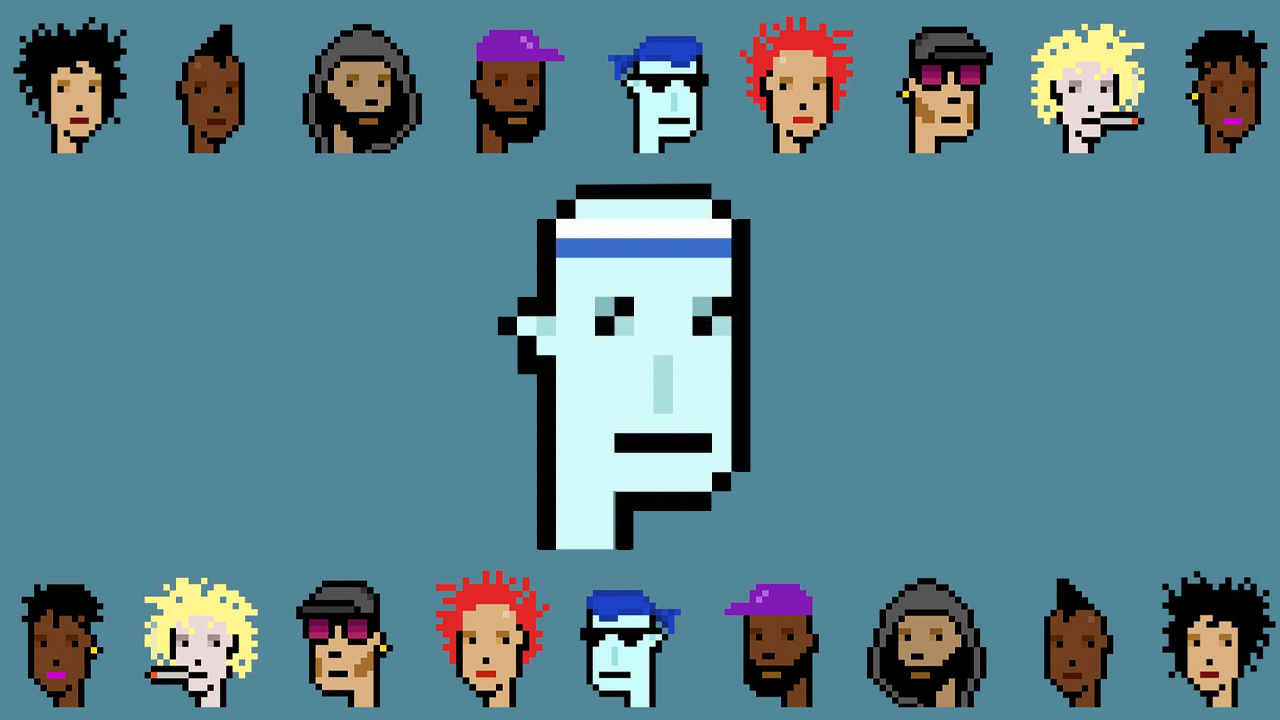 While traditional crypto assets have seen market sentiment drop to a level of uncertainty, non-fungible token (NFT) assets have continued to sell in the millions. One project developed by Larva Labs called Cryptopunks has seen some of its NFTs sell for millions and on May 11, a collection of nine Cryptopunks sold for $16.9 million […]
While traditional crypto assets have seen market sentiment drop to a level of uncertainty, non-fungible token (NFT) assets have continued to sell in the millions. One project developed by Larva Labs called Cryptopunks has seen some of its NFTs sell for millions and on May 11, a collection of nine Cryptopunks sold for $16.9 million […]